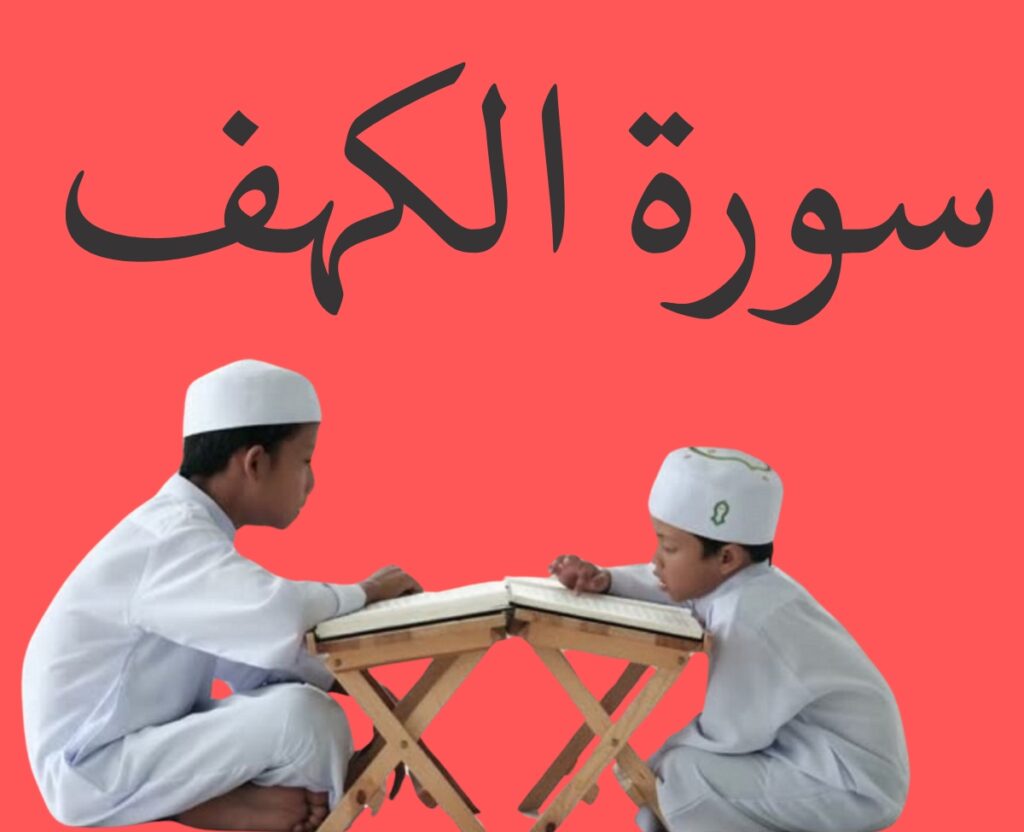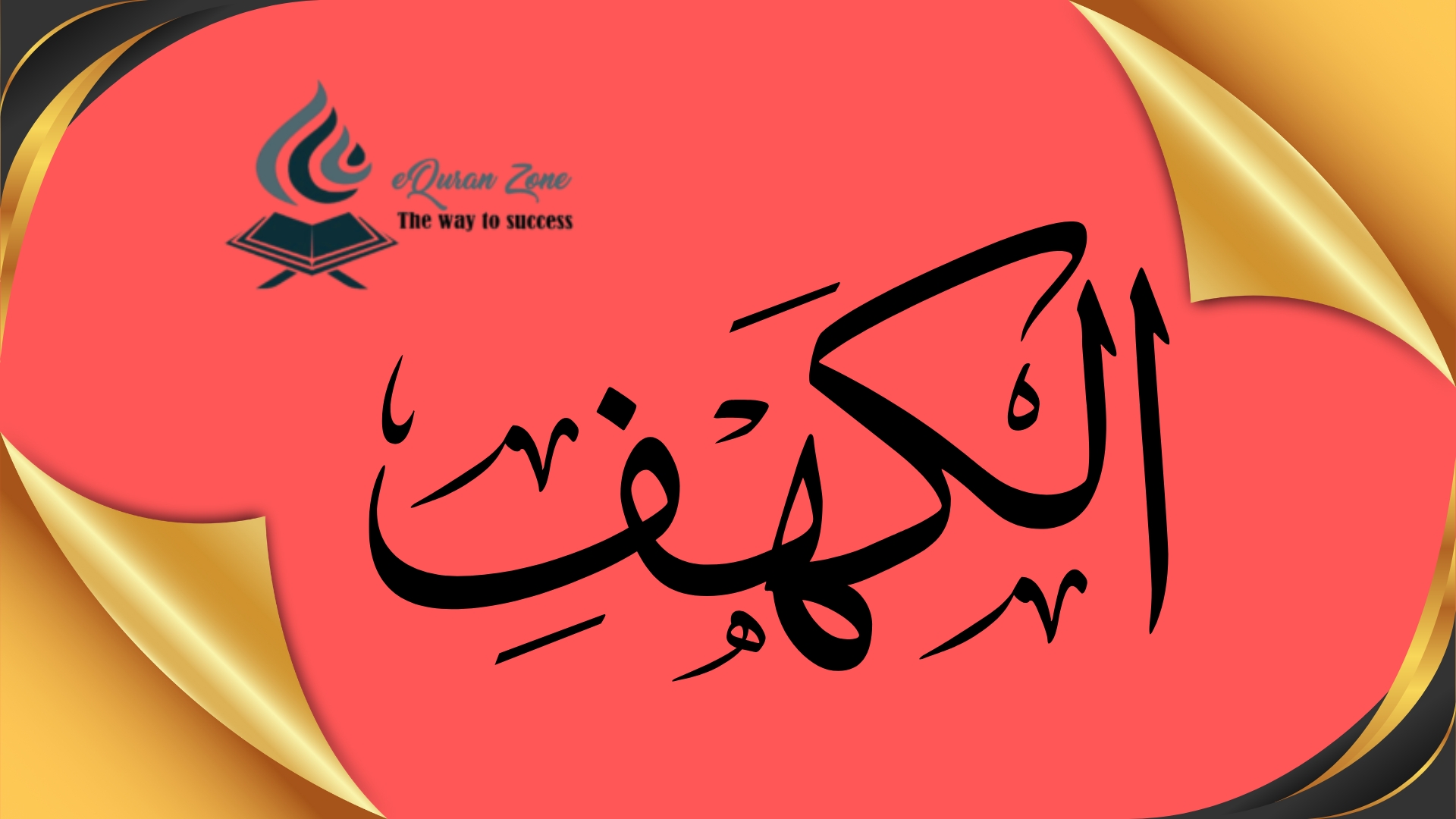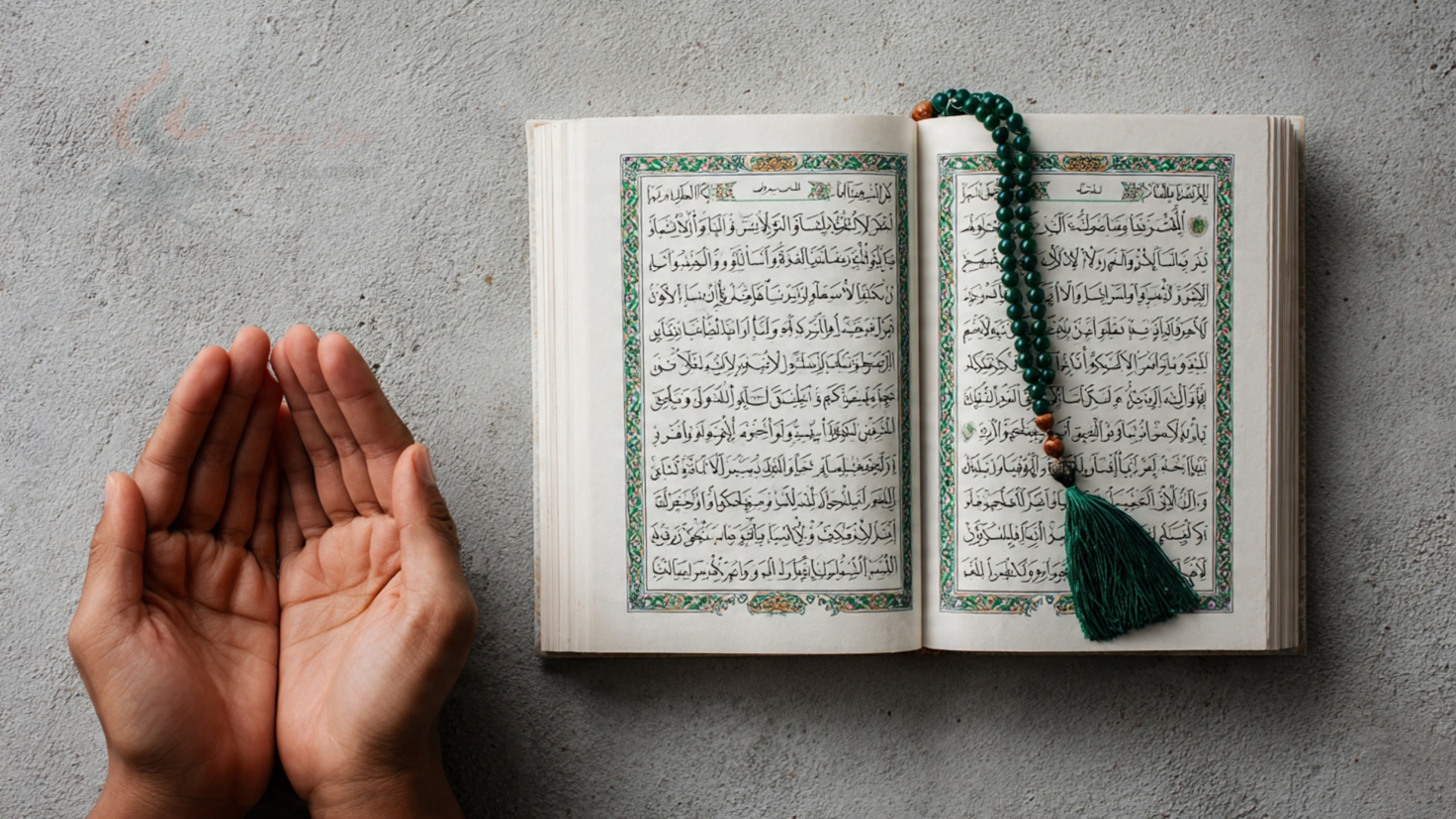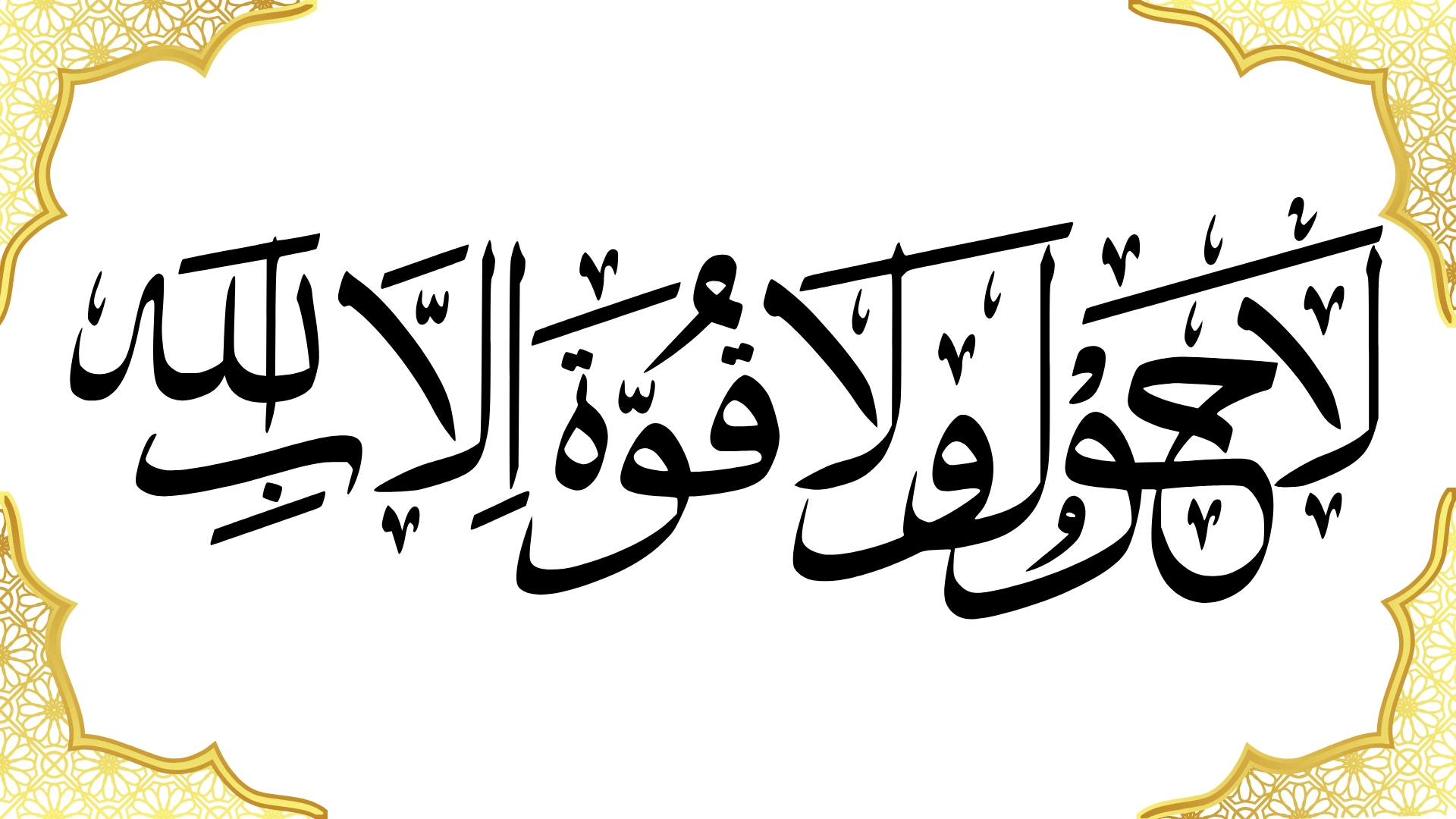All over the world, Muslims find great importance in Surah Al-Kahf. Because of Surah Al-Kahf transliteration, recitation can be done by those who do not know Arabic script. This approach helps more people to reach the Quran’s significant lessons. Even those who don’t yet know the language can speak the verses correctly and enjoy their spiritual benefits.
They point out that learning from the Quran is helped by the process of transliteration. They think it provides a useful introduction for those who do not speak Arabic. Many people who study and interpret the Quran point out that transliteration makes proper pronunciation and a stronger focus on recitation possible.
It helps you more than just reading; it builds a close spiritual connection over time. It allows all Muslims to read and study God’s words, no matter the language they speak. The beauty of this accessibility is that it helps all hearts in need of guidance.
What is Surah Al-Kahf?
Chapter 18 of the Quran is called Surah Al-Kahf or “The Cave.” A surah of 110 verses, it is from the Makkan period and reminds us through guidance on patience, humility, and faith. Its inspiring concepts are why Muslims often listen to it during Friday worship.
| Aspect | Details |
| Name | Surah Al-Kahf |
| Meaning | “The Cave” |
| Chapter Number | 18 |
| Number of Verses | 110 |
| Type | Makkan |

Good Things about Reciting Surah Al-Fatiha
Chanting this surah for one’s is rewarded and helps keep us safe. According to Prophet Muhammad (may peace be upon him), reading Surah al-Kahf benefits a person by providing inner understanding between Fridays and protection from challenges put by the Dajjal (Antichrist).
The Stories Uncovered in Surah Al-Kahf
All the stories in this chapter include lessons that are important to people in any culture or age. Because of transliteration, these parables can be studied closely, even by those unfamiliar with the Arabic language.
Cave People
The narrative, known as Ashab Al-Kahf, tells of some young people who went to a cave to hide their faith from unbelievers.
Religion in Troubled Times
This account teaches perseverance during hardship.
Lessons from Divine Protection
Transliteration enables a smooth recitation of verses that describe divine safeguarding.
The Transience of Life
The story reminds us of the temporary nature of worldly challenges compared to eternal rewards. Through transliteration, these profound messages can be vocalized accurately by anyone.
The Man with Two Gardens
Here, we meet two individuals with contrasting perspectives on wealth.
- Humility vs. Arrogance
One man attributes his wealth to Allah, while the other succumbs to pride. - Worldly Success and Its Deception
The parable highlights how material life can veil eternal truths. Transliteration provides access to the original Quranic phrasing, preserving the narrative’s power. - The Fleeting Nature of Material Wealth
Reciting these verses emphasizes the impermanence of such worldly accumulations.
Musa’s Encounter with Al-Khidr
A compelling tale between two wise men unfolds as lessons are revealed through unexpected circumstances.
The Pursuit of Knowledge and Patience
Musa (AS) seeks profound wisdom, learning patience along the way. Transliteration allows learners to practice Quranic Arabic while uncovering these lessons.
Trusting Allah’s Wisdom
Actions that may seem perplexing are explained through divine wisdom, reminding readers to trust unseen plans.
Understanding the Limits of Human Perception
The essence of this encounter is accepting that human reasoning cannot comprehend divine workings fully.
Dhu al-Qarnayn and His Just Leadership
A ruler epitomizes fairness despite holding great power.
Building Unity and Justice
Transliteration equips readers with the ability to recite the verses narrating his endeavors in establishing order and justice.
Preparing for the Trials of the End Times
The protection against Gog and Magog reminds us of the constant divine test faced by humanity.
The Role of Wisdom in Leadership
Dhu al-Qarnayn’s story emphasizes the importance of humble governance, knowledge, and responsibility.
Life Lessons and Themes in Surah Al-Kahf
Through transliteration, even those new to Quranic recitation can access immeasurable guidance.
Finding Strength Through Patience (Sabr) and Gratitude (Shukr)
The verse structure echoes patience and thankfulness throughout the surah, concepts that transliteration introduces universally.
The Importance of Allah’s Mercy and Guidance
Regular recitation reminds us of Allah’s unmatched mercy. When read with transliteration, these truths deeply resonate, bridging language barriers.
Reflecting on the Temporary Nature of Worldly Life
Every story builds a case for focusing on the long-term afterlife rather than earthly distractions.
The Connection Between Past Stories and Current Challenges
Historical examples remain relevant by reiterating values and divine principles using direct speech.
The Significance of Surah Al-Kahf in Daily Life
Adopting Surah Al-Kahf’s lessons can transform how we approach trials and tribulations.
Protection from Trials Like Dajjal
The Prophet Muhammad (PBUH) said that memorizing the first ten and last ten verses protects against the Antichrist’s deception. Transliteration tools allow everyone to embed this divine safeguard into their hearts.
How Surah Al-Kahf Can Inspire Positivity and Faith
Recitation cultivates hope, reinforcing values like patience and generosity.
Relating Divine Lessons to Modern Struggles
From enduring economic hardships to staying strong against societal pressures, the stories of Surah Al-Kahf provide relatable lifelines.

Practical Guidance of (1-30 Ayats) of Surah Kahf with Transliteration And English & Urdu Translation
Employing Surah Al-Kahf transliteration while learning Surah Al-Kahf ensures a smoother journey toward fluency, both linguistically and spiritually.
بِسۡمِ ٱللَّهِ ٱلرَّحۡمَٰنِ ٱلرَّحِيمِ
Bismillah hir rahman nir raheem
ترجمہ: شروع اﷲ کے نام سے جو بڑا مہربان نہایت رحم والا (ہے)
In the name of Allah, the Entirely Merciful, the Especially Merciful.
ٱلۡحَمۡدُ لِلَّهِ ٱلَّذِيٓ أَنزَلَ عَلَىٰ عَبۡدِهِ ٱلۡكِتَٰبَ وَلَمۡ يَجۡعَل لَّهُۥ عِوَ-1
Alhamdu lillaahil lazeee anzala ‘alaa ‘abdihil kitaaba wa lam yaj’al lahoo ‘iwajaa
تمام تعریفیں اس اللہ کیلئے ہیں جس نے اپنے بندے پر کتاب نازل فرمائی اور اس میں کوئی ٹیڑھ نہیں رکھی۔
[All] praise is due to Allah, who has sent down upon His Servant the Book and has not made therein any deviation.
قَيِّمٗا لِّيُنذِرَ بَأۡسٗا شَدِيدٗا مِّن لَّدُنۡهُ وَيُبَشِّرَ ٱلۡمُؤۡمِنِينَ ٱلَّذِينَ يَعۡمَلُونَ ٱلصَّـٰلِحَٰتِ أَنَّ لَهُمۡ أَجۡرًا حَسَنٗا-2
Qaiyimal liyunzira ba’asan shadeedam mil ladunhu wa yubashshiral mu’mineenal lazeena ya’maloonas saalihaati anna lahum ajran hasanaa
لوگوں کی مصلحتوں کو قائم رکھنے والی نہایت معتدل کتاب تاکہ اللہ کی طرف سے سخت عذاب سےڈرائے اوراچھے اعمال کرنے والے مومنوں کو خوشخبری دے کہ ان کے لیے اچھا ثواب ہے۔
[He has made it] straight, to warn of severe punishment from Him and to give good tidings to the believers who do righteous deeds that they will have a good reward
مَّـٰكِثِينَ فِيهِ أَبَدٗا-3
Maakiseena feehi abadaa
جس میں ہمیشہ رہیں گے۔
In which they will remain forever
وَيُنذِرَ ٱلَّذِينَ قَالُواْ ٱتَّخَذَ ٱللَّهُ وَلَدٗا-4
Wa yunziral lazeena qaalut takhazal laahu waladaa
اور ان لوگوں کو ڈرائے جو کہتے ہیں کہ اللہ نے اپنا کوئی بچہ بنایا ہے۔
And to warn those who say, “Allah has taken a son.
مَّا لَهُم بِهِۦ مِنۡ عِلۡمٖ وَلَا لِأٓبَآئِهِمۡۚ كَبُرَتۡ كَلِمَةٗ تَخۡرُجُ مِنۡ أَفۡوَٰهِهِمۡۚ إِن يَقُولُونَ إِلَّا كَذِبٗا-5
Maa lahum bihee min ‘ilminw wa laa li aabaaa’ihim; kaburat kalimatan takhruju min afwaahihim; iny yaqooloona illaa kazibaa
اس بارے میں نہ تووہ کچھ علم رکھتے ہیں اورنہ ان کے باپ دادا۔کتنا بڑا بول ہے جو ان کے منہ سے نکلتا ہے۔ وہ بالکل جھوٹ کہہ رہے ہیں ۔
They do not know of it, nor had their fathers. Grave is the word that comes out of their mouths; they speak not except a lie.
فَلَعَلَّكَ بَٰخِعٞ نَّفۡسَكَ عَلَىٰٓ ءَاثَٰرِهِمۡ إِن لَّمۡ يُؤۡمِنُواْ بِهَٰذَا ٱلۡحَدِيثِ أَسَفًا-6
Fala’allaka baakhi’un nafsaka ‘alaaa aasaarihim illam yu’minoo bihaazal hadeesi asafaa
اگر وہ اس بات پر ایمان نہ لائیں تو ہوسکتا ہے کہ تم ان کے پیچھے غم کے مارے اپنی جان کو ختم کردو۔
Then perhaps you would kill yourself through grief over them, [O Muhammad], if they do not believe in this message, [and] out of sorrow.
إِنَّا جَعَلۡنَا مَا عَلَى ٱلۡأَرۡضِ زِينَةٗ لَّهَا لِنَبۡلُوَهُمۡ أَيُّهُمۡ أَحۡسَنُ عَمَلٗا-7
Innaa ja’alnaa ma ‘alal ardi zeenatal lahaa linabluwahum ayyuhum ahsanu ‘amalaa
بیشک ہم نے زمین پر موجود چیزوں کوزمین کیلئے زینت بنایا تاکہ ہم انہیں آزمائیں کہ ان میں عمل کے اعتبار سے کون اچھا ہے۔
Indeed, We have made that which is on the earth adornment for it that We may test them [as to] which of them is best in deed.
وَإِنَّا لَجَٰعِلُونَ مَا عَلَيۡهَا صَعِيدٗا جُرُزًا-8
Wa innaa la jaa’iloona maa ‘alaihaa sa’eedan juruzaa
اور بیشک جو کچھ زمین پر ہے ہم اسے خشک میدان بنا دیں گے۔
And indeed, We will make that which is upon it [into] a barren ground.
أَمۡ حَسِبۡتَ أَنَّ أَصۡحَٰبَ ٱلۡكَهۡفِ وَٱلرَّقِيمِ كَانُواْ مِنۡ ءَايَٰتِنَا عَجَبًا-9
Am hasibta anna Ashaabal Kahfi war Raqeemi kaanoo min Aayaatinaa ‘ajabaa
کیا تمہیں معلوم ہوا کہ پہاڑ ی غار اور جنگل کے کنارے والے وہ ہماری نشانیوں میں سے ایک عجیب نشانی تھے۔
Or have you thought that the companions of the cave and the inscription were, among Our signs, a wonder?
إِذۡ أَوَى ٱلۡفِتۡيَةُ إِلَى ٱلۡكَهۡفِ فَقَالُواْ رَبَّنَآ ءَاتِنَا مِن لَّدُنكَ رَحۡمَةٗ وَهَيِّئۡ لَنَا مِنۡ أَمۡرِنَا رَشَدٗا-10
Iz awal fityatu ilal Kahfi faqaaloo Rabbanaaa aatinaa mil ladunka rahmatanw wa haiyi’ lanaa min amrinaa rashadaa
جب ان نوجوانوں نے ایک غار میں پناہ لی، پھرکہنے لگے: اے ہمارے رب! ہمیں اپنے پاس سے رحمت عطا فرما اور ہمارے لئے ہمارے معاملے میں ہدایت کے اسباب مہیا فرما۔
[Mention] when the youths retreated to the cave and said, “Our Lord, grant us from Yourself mercy and prepare for us from our affair right guidance.”
فَضَرَبۡنَا عَلَىٰٓ ءَاذَانِهِمۡ فِي ٱلۡكَهۡفِ سِنِينَ عَدَدٗا-11
Fadarabnaa ‘alaaa aazaanihim fil Kahfi seneena ‘adadaa
تو ہم نے اس غار میں ان کے کانوں پر گنتی کے کئی سال پردہ لگا رکھا ۔
So we cast a cover of sleep over their ears within the cave for several years.
ثُمَّ بَعَثۡنَٰهُمۡ لِنَعۡلَمَ أَيُّ ٱلۡحِزۡبَيۡنِ أَحۡصَىٰ لِمَا لَبِثُوٓاْ أَمَدٗا-12
Summa ba’asnaahum lina’lama ayyul hizbaini ahsaa limaa labisooo amadaa
پھر ہم نے انہیں جگایا تاکہ دیکھیں کہ دو گروہوں میں سے کون ان کے ٹھہرنے کی مدت زیادہ درست بتاتا ہے۔
Then We awakened them that We might show which of the two factions was most precise in calculating what extent they had remained in time.
نَّحۡنُ نَقُصُّ عَلَيۡكَ نَبَأَهُم بِٱلۡحَقِّۚ إِنَّهُمۡ فِتۡيَةٌ ءَامَنُواْ بِرَبِّهِمۡ وَزِدۡنَٰهُمۡ هُدٗى-13
Nahnu naqussu ‘alaika naba ahum bilhaqq; innahum fityatun aamanoo bi Rabbihim wa zidnaahum hudaa
ہم آپ کے سامنے ان کا ٹھیک ٹھیک حال بیان کرتے ہیں ۔ بیشک وہ کچھ جوان تھے جو اپنے رب پر ایمان لائے اور ہم نے ان کی ہدایت میں اضافہ کردیا۔
It is we who relate to you, [O Muhammad], their story in truth. Indeed, they were youths who believed in their Lord, and We increased them in guidance.
وَرَبَطۡنَا عَلَىٰ قُلُوبِهِمۡ إِذۡ قَامُواْ فَقَالُواْ رَبُّنَا رَبُّ ٱلسَّمَٰوَٰتِ وَٱلۡأَرۡضِ لَن نَّدۡعُوَاْ مِن دُونِهِۦٓ إِلَٰهٗاۖ لَّقَدۡ قُلۡنَآ إِذٗا شَطَطًا-14
Wa rabatnaa ‘alaa quloo bihim iz qaamoo faqaaloo Rabbunaa Rabbus samaawaati wal ardi lan nad’uwa min dooniheee ilaahal laqad qulnaaa izan shatataa
اور ہم نے ان کے دلوں کو قوت عطا فرمائی جب وہ کھڑے ہوگئے تو کہنے لگے: ہمارا رب وہ ہے جو آسمانوں اور زمین کا رب ہے ،ہم اس کے سوا کسی معبود کی عبادت ہرگز نہیں کریں گے۔ اگر ہم ایسا کریں تو اس وقت ہم ضرور حد سے بڑھی ہوئی بات کہنے والے ہوں گے۔
And We made firm their hearts when they stood up and said, “Our Lord is the Lord of the heavens and the earth. Never will we invoke besides Him any deity. We would have certainly spoken, then, an excessive transgression.
هَـٰٓؤُلَآءِ قَوۡمُنَا ٱتَّخَذُواْ مِن دُونِهِۦٓ ءَالِهَةٗۖ لَّوۡلَا يَأۡتُونَ عَلَيۡهِم بِسُلۡطَٰنِۭ بَيِّنٖۖ فَمَنۡ أَظۡلَمُ مِمَّنِ ٱفۡتَرَىٰ عَلَى ٱللَّهِ كَذِبٗا-15
Haaa’ulaaa’i qawmunat takhazoo min dooniheee aalihatal law laa yaatoona ‘alaihim bisultaanim baiyin; faman azlamu mimmaniftaraa ‘alal laahi kazibaa
یہ ہماری قوم ہے انہوں نے اللہ کے سوا اور معبود بنا رکھے ہیں ، یہ ان پر کوئی روشن دلیل کیوں نہیں لاتے؟ تو اس سے بڑھ کر ظالم کون جو اللہ پر جھوٹ باندھے؟
These, our people, have taken besides Him deities. Why do they not bring for [worship of] them a clear authority? And who is more unjust than one who invents about Allah a lie?”
وَإِذِ ٱعۡتَزَلۡتُمُوهُمۡ وَمَا يَعۡبُدُونَ إِلَّا ٱللَّهَ فَأۡوُۥٓاْ إِلَى ٱلۡكَهۡفِ يَنشُرۡ لَكُمۡ رَبُّكُم مِّن رَّحۡمَتِهِۦ وَيُهَيِّئۡ لَكُم مِّنۡ أَمۡرِكُم مِّرۡفَقٗا-16
Wa izi’tazal tumoohum wa maa ya’budoona illal laaha faawooo ilal kahfi yanshur lakum Rabbukum mir rahmatihee wa yuhaiyi’ lakum min amrikum mirfaqa
اور (آپس میں کہا:) جب تم ان لوگوں سے اور اللہ کے سوا جن کو یہ پوجتے ہیں ان سے جدا ہوجاؤ تو غار میں پناہ لو، تمہارا رب تمہارے لیے اپنی رحمت پھیلا دے گا اور تمہارے کام میں تمہارے لئے آسانی مہیا کردے گا۔
[The youths said to one another], “And when you have withdrawn from them and that which they worship other than Allah, retreat to the cave. Your Lord will spread out for you of His mercy and will prepare for you from your affair facility.”
17-۞وَتَرَى ٱلشَّمۡسَ إِذَا طَلَعَت تَّزَٰوَرُ عَن كَهۡفِهِمۡ ذَاتَ ٱلۡيَمِينِ وَإِذَا غَرَبَت تَّقۡرِضُهُمۡ ذَاتَ ٱلشِّمَالِ وَهُمۡ فِي فَجۡوَةٖ مِّنۡهُۚ ذَٰلِكَ مِنۡ ءَايَٰتِ ٱللَّهِۗ مَن يَهۡدِ ٱللَّهُ فَهُوَ ٱلۡمُهۡتَدِۖ وَمَن يُضۡلِلۡ فَلَن تَجِدَ لَهُۥ وَلِيّٗا مُّرۡشِدٗا
Wa tarash shamsa izaa tala’at tazaawaru ‘an kahfihim zaatal yameeni wa izaa gharabat taqriduhum zaatash shimaali wa hum fee fajwatim minh; zaalika min Aayaatillaah; mai yahdil laahu fahuwal muhtad, wa mai yudlil falan tajida lahoo waliyyam murshidaa
اور اے حبیب! تم سورج کو دیکھو گے کہ جب نکلتا ہے تو ان کے غار کے دائیں جانب مائل ہوکر نکل جاتا ہے اور جب غروب ہوتا ہے تو ان سے بائیں طرف کتراکر گزر جاتا ہے حالانکہ وہ اس غار کے کھلے حصے میں ہیں ۔ یہ اللہ کی نشانیوں میں سے ہے ۔ جسے اللہ ہدایت دیتا ہے تو وہی ہدایت پانے والا ہے اور جسے وہ گمراہ کرے تو تم ہرگز اس کیلئے کوئی راہ دکھانے والا مددگار نہ پاؤ گے۔
And [had you been present], you would see the sun when it rose, inclining away from their cave on the right, and when it set, passing away from them on the left, while they were [lying] within an open space thereof. That was from the signs of Allah. He whom Allah guides is the [rightly] guided, but he whom He leaves astray – never will you find for him a protecting guide.
وَتَحۡسَبُهُمۡ أَيۡقَاظٗا وَهُمۡ رُقُودٞۚ وَنُقَلِّبُهُمۡ ذَاتَ ٱلۡيَمِينِ وَذَاتَ ٱلشِّمَالِۖ وَكَلۡبُهُم بَٰسِطٞ ذِرَاعَيۡهِ بِٱلۡوَصِيدِۚ لَوِ ٱطَّلَعۡتَ عَلَيۡهِمۡ لَوَلَّيۡتَ مِنۡهُمۡ فِرَارٗا وَلَمُلِئۡتَ مِنۡهُمۡ رُعۡبٗا-18
Wa tahsabuhum ayqaazanw wa hum ruqood; wa nuqallibuhum zaatal yameeni wa zaatash shimaali wa kalbuhum baasitun ziraa’ayhi bilwaseed; lawit tala’ta ‘alaihim la wallaita minhum firaaranw wa lamuli’ta minhum rubaa
اور تم انہیں جاگتے ہوئے خیال کرو گے حالانکہ وہ سو رہے ہیں اور ہم ان کی دائیں اور بائیں کروٹ بدلتے رہتے ہیں اور ان کا کتا غار کی چوکھٹ پراپنی کلائیاں پھیلائے ہوئے ہے ۔ اے سننے والے ! اگر تو انہیں جھانک کر دیکھ لے تو ان سے پیٹھ پھیر کر بھاگ جائے اور ان کی ہیبت سے بھر جائے۔
And you would think them awake, while they were asleep. And we turned them to the right and the left, while their dog stretched his forelegs at the entrance. If you had looked at them, you would have turned from them in flight and been filled by them with terror.
وَكَذَٰلِكَ بَعَثۡنَٰهُمۡ لِيَتَسَآءَلُواْ بَيۡنَهُمۡۚ قَالَ قَآئِلٞ مِّنۡهُمۡ كَمۡ لَبِثۡتُمۡۖ قَالُواْ لَبِثۡنَا يَوۡمًا أَوۡ بَعۡضَ يَوۡمٖۚ قَالُواْ رَبُّكُمۡ أَعۡلَمُ بِمَا لَبِثۡتُمۡ فَٱبۡعَثُوٓاْ أَحَدَكُم بِوَرِقِكُمۡ هَٰذِهِۦٓ إِلَى ٱلۡمَدِينَةِ فَلۡيَنظُرۡ أَيُّهَآ أَزۡكَىٰ طَعَامٗا فَلۡيَأۡتِكُم بِرِزۡقٖ مِّنۡهُ وَلۡيَتَلَطَّفۡ وَلَا يُشۡعِرَنَّ بِكُمۡ أَحَدًا-19
Wa kazaalika ba’asnaahum liyatasaaa’aloo bainahum; qaala qaaa’ilum minhum kam labistum qaaloo labisnaa yawman aw ba’da yawm; qaaloo Rabbukum a’lamu bimaa labistum fab’asooo ahadakum biwariqikum haazihee ilal madeenati falyanzur ayyuhaaa azkaa ta’aaman falyaatikum birizqim minhu walyatalattaf wa laa yush’iranna bikum ahadaa
اور ویسا ہی ہم نے انہیں جگایا تاکہ آپس میں ایک دوسرے سے حالات پوچھیں ۔ ان میں سے ایک کہنے والے نے کہا: تم یہاں کتنی دیر رہے ہو؟ چند افراد نے کہا: کہ ہم ایک دن رہے ہیں یا ایک دن سے کچھ کم وقت۔ دوسروں نے کہا: تمہارا رب خوب جانتا ہے جتنا تم ٹھہرے ہوتو اپنے میں سے ایک کو یہ چاندی دے کرشہر کی طرف بھیجو تاکہ وہ دیکھے کہ وہاں کون سا کھانا زیادہ عمدہ ہے پھر تمہارے پاس اسی میں سے کوئی کھانا لے آئے اور اسے چاہیے کہ نرمی سے کام لے اور ہرگز کسی کو تمہاری اطلاع نہ دے۔
And similarly, we awakened them that they might question one another. Said a speaker from among them, “How long have you remained [here]?” They said, “We have remained a day or part of a day.” They said, “Your Lord is most knowing of how long you remained. So send one of you with this silver coin of yours to the city and let him look to which is the best food and bring you provisions from it, and let him be cautious. And let no one be aware of you.
إِنَّهُمۡ إِن يَظۡهَرُواْ عَلَيۡكُمۡ يَرۡجُمُوكُمۡ أَوۡ يُعِيدُوكُمۡ فِي مِلَّتِهِمۡ وَلَن تُفۡلِحُوٓاْ إِذًا أَبَدٗا-20
Innahum iny yazharoo ‘alaikum yarjumookum aw yu’eedookum fee millatihim wa lan tuflihooo izan abadaa
بیشک اگر انہوں نے تمہیں جان لیا تو تمہیں پتھر ماریں گے یا تمہیں اپنے دین میں پھیر لیں گے اور اگر ایسا ہوا تو پھر تم کبھی بھی فلاح نہ پاؤگے۔
Indeed, if they come to know you, they will stone you or return you to their religion. And never would you succeed, then–ever.”
وَكَذَٰلِكَ أَعۡثَرۡنَا عَلَيۡهِمۡ لِيَعۡلَمُوٓاْ أَنَّ وَعۡدَ ٱللَّهِ حَقّٞ وَأَنَّ ٱلسَّاعَةَ لَا رَيۡبَ فِيهَآ إِذۡ يَتَنَٰزَعُونَ بَيۡنَهُمۡ أَمۡرَهُمۡۖ فَقَالُواْ ٱبۡنُواْ عَلَيۡهِم بُنۡيَٰنٗاۖ رَّبُّهُمۡ أَعۡلَمُ بِهِمۡۚ قَالَ ٱلَّذِينَ غَلَبُواْ عَلَىٰٓ أَمۡرِهِمۡ لَنَتَّخِذَنَّ عَلَيۡهِم مَّسۡجِدٗا-21
Wa kazaalika a’sarnaa ‘alaihim liya’lamooo anna wa’dal laahi haqqunw wa annas Saa’ata laa raiba feehaa iz yatanaaza’oona bainahum amrahum faqaalub noo ‘alaihim bunyaanaa; Rabbuhum a’lamu bihim; qaalal lazeena ghalaboo ‘alaaa amrihim lanat takhizanna ‘alaihim masjidaa
اور اسی طرح ہم نے ان پر مطلع کردیا تاکہ لوگ جان لیں کہ اللہ کا وعدہ سچا ہے اور یہ کہ قیامت میں کچھ شبہ نہیں ، جب وہ لوگ ان کے معاملے میں باہم جھگڑنے لگے تو کہنے لگے : ان کے غار پر کوئی عمارت بنادو ، ان کا رب انہیں خوب جانتا ہے، جو لوگ اپنے اس کام میں غالب رہے تھے انہوں نے کہا: ہم ضرور ان کے قریب ایک مسجد بنائیں گے۔
And similarly, We caused them to be found that they [who found them] would know that the promise of Allah is true and that of the Hour there is no doubt. [That was] when they disputed among themselves about their affair and [then] said, “Construct over them a structure. Their Lord is most knowing about them.” Said those who prevailed in the matter, “We will surely take [for ourselves] over them a masjid.”
سَيَقُولُونَ ثَلَٰثَةٞ رَّابِعُهُمۡ كَلۡبُهُمۡ وَيَقُولُونَ خَمۡسَةٞ سَادِسُهُمۡ كَلۡبُهُمۡ رَجۡمَۢا بِٱلۡغَيۡبِۖ وَيَقُولُونَ سَبۡعَةٞ وَثَامِنُهُمۡ كَلۡبُهُمۡۚ قُل رَّبِّيٓ أَعۡلَمُ بِعِدَّتِهِم مَّا يَعۡلَمُهُمۡ إِلَّا قَلِيلٞۗ فَلَا تُمَارِ فِيهِمۡ إِلَّا مِرَآءٗ ظَٰهِرٗا وَلَا تَسۡتَفۡتِ فِيهِم مِّنۡهُمۡ أَحَدٗا-22
Sa yaqooloona salaasatur raabi’uhum kalbuhum wa yaqooloona khamsatun saadisuhum kalbuhum rajmam bilghaib; wa yaqooloona sab’atunw wa saaminuhum kalbuhum; qur Rabbeee a’lamu bi’iddatihim maa ya’lamuhum illaa qaleel; falaa tumaari feehim illaa miraaa’an zaahiranw wa laa tastafti feehim minhum ahadaa
اب لوگ کہیں گے کہ وہ تین ہیں (جبکہ) چوتھا ان کا کتا ہے اور کچھ کہیں گے : وہ پانچ ہیں (اور) چھٹا ان کا کتا ہے (یہ سب) بغیر دیکھے اندازے ہیں اور کچھ کہیں گے: وہ سات ہیں اور آٹھواں ان کا کتا ہے ۔ تم فرماؤ! میرا رب ان کی تعداد خوب جانتا ہے۔ انہیں بہت تھوڑے لوگ جانتے ہیں ۔ تو ان کے بارے میں بحث نہ کرو مگر اتنی ہی جتنی ظاہر ہوچکی ہے اور ان کے بارے میں ان میں سے کسی سے کچھ نہ پوچھو۔
They will say there were three, the fourth of them being their dog; and they will say there were five, the sixth of them being their dog, guessing at the unseen; and they will say there were seven, and the eighth of them was their dog. Say, [O Muhammad], “My Lord is most knowing of their number. One knows them, except for a few. So do not argue about them except with an obvious argument, and do not inquire about them among [the speculators] from anyone.
وَلَا تَقُولَنَّ لِشَاْيۡءٍ إِنِّي فَاعِلٞ ذَٰلِكَ غَدًا-23
Wa laa taqoolanna lishai’in innee faa’ilun zaalika ghadaa
اور ہر گز کسی چیز کے متعلق نہ کہنا کہ میں کل یہ کرنے والاہوں ۔
And never say of anything, “Indeed, I will do that tomorrow,”
إِلَّآ أَن يَشَآءَ ٱللَّهُۚ وَٱذۡكُر رَّبَّكَ إِذَا نَسِيتَ وَقُلۡ عَسَىٰٓ أَن يَهۡدِيَنِ رَبِّي لِأَقۡرَبَ مِنۡ هَٰذَا رَشَدٗا-24
Illaaa any yashaaa’al laah; wazkur Rabbaka izaa naseeta wa qul ‘asaaa any yahdiyani Rabbee li aqraba min haazaa rashadaa
مگر یہ کہ اللہ چاہے اور جب تم بھول جاؤ تو اپنے رب کو یاد کرلواور یوں کہو کہ قریب ہے کہ میرا رب مجھے اس واقعے سے زیادہ قریب ہدایت کا کوئی راستہ دکھائے۔
Except when adding, “If Allah wills.” And remember your Lord when you forget [it] and say, “Perhaps my Lord will guide me to what is nearer than this to right conduct.”
وَلَبِثُواْ فِي كَهۡفِهِمۡ ثَلَٰثَ مِاْئَةٖ سِنِينَ وَٱزۡدَادُواْ تِسۡعٗا-25
Wa labisoo fee kahfihim salaasa mi’atin sineena wazdaadoo tis’aa
اور وہ اپنے غار میں تین سو سال ٹھہرے اورنو سال زیادہ۔
And they remained in their cave for three hundred years, and were exceeded by nine.
قُلِ ٱللَّهُ أَعۡلَمُ بِمَا لَبِثُواْۖ لَهُۥ غَيۡبُ ٱلسَّمَٰوَٰتِ وَٱلۡأَرۡضِۖ أَبۡصِرۡ بِهِۦ وَأَسۡمِعۡۚ مَا لَهُم مِّن دُونِهِۦ مِن وَلِيّٖ وَلَا يُشۡرِكُ فِي حُكۡمِهِۦٓ أَحَدٗا-26
Qulil laahu a’lamu bimaa labisoo lahoo ghaibus samaawaati wal ardi absir bihee wa asmi’; maa lahum min doonihee minw waliyyinw wa laa yushriku fee hukmihee ahadaa
تم فرماؤ: اللہ خوب جانتا ہے وہ جتنا ٹھہرے۔ آسمانوں اور زمین کے سب غیب اسی کے لیے ہیں ، وہ کتنا دیکھنے والا اور سننے والا ہے۔ ان کیلئے اس کے سوا کوئی مددگار نہیں اور وہ اپنے حکم میں کسی کو شریک نہیں کرتا۔
Say, “Allah is most knowing of how long they remained. He has [knowledge of] the unseen [aspects of the heavens and the earth. How Seeing is He and how Hearing! They have not besides Him any protector, and He shares not His legislation with anyone.”
وَٱتۡلُ مَآ أُوحِيَ إِلَيۡكَ مِن كِتَابِ رَبِّكَۖ لَا مُبَدِّلَ لِكَلِمَٰتِهِۦ وَلَن تَجِدَ مِن دُونِهِۦ مُلۡتَحَدٗا-27
Watlu maaa oohiya ilaika min Kitaabi Rabbika laa mubaddila li Kalimaatihee wa lan tajida min doonihee multahadaa
اور اپنے رب کی کتاب سے اس وحی کی تلاوت کرو جو آپ کی طرف بھیجی گئی ہے ۔اس کی باتوں کو کوئی بدلنے والا نہیں اور تم ہرگز اس کے سوا کوئی پناہ نہ پاؤ گے۔
And recite, [O Muhammad], what has been revealed to you of the Book of your Lord. There is no change in His words, and never will you find in anything other than Him a refuge.
وَٱصۡبِرۡ نَفۡسَكَ مَعَ ٱلَّذِينَ يَدۡعُونَ رَبَّهُم بِٱلۡغَدَوٰةِ وَٱلۡعَشِيِّ يُرِيدُونَ وَجۡهَهُۥۖ وَلَا تَعۡدُ عَيۡنَاكَ عَنۡهُمۡ تُرِيدُ زِينَةَ ٱلۡحَيَوٰةِ ٱلدُّنۡيَاۖ وَلَا تُطِعۡ مَنۡ أَغۡفَلۡنَا قَلۡبَهُۥ عَن ذِكۡرِنَا وَٱتَّبَعَ هَوَىٰهُ وَكَانَ أَمۡرُهُۥ فُرُطٗا-28
Wasbir nafsaka ma’al lazeena yad’oona Rabbahum bilghadaati wal’ashiyyi yureedoona Wajhahoo wa laa ta’du ‘aynaaka ‘anhum tureedu zeenatal hayaatid dunyaa wa laa tuti’ man aghfalnaa qalbahoo ‘an zikrinaa wattaba’a hawaahu wa kaana amruhoo furutaa
اور اپنی جان کو ان لوگوں کے ساتھ مانوس رکھ جو صبح و شام اپنے رب کو پکارتے ہیں اس کی رضا چاہتے ہیں اور تیری آنکھیں دنیوی زندگی کی زینت چاہتے ہوئے انہیں چھوڑ کر اوروں پر نہ پڑیں اور اس کی بات نہ مان جس کا دل ہم نے اپنی یاد سے غافل کردیا اور وہ اپنی خواہش کے پیچھے چلا اور اس کا کام حد سے گزر گیا۔
And keep yourself patient [by being] with those who call upon their Lord in the morning and the evening, seeking His countenance. And let not your eyes pass beyond them, desiring adornments of the worldly life, and do not obey one whose heart We have made heedless of Our remembrance and who follows his desire and whose affair is ever [in] neglect.
وَقُلِ ٱلۡحَقُّ مِن رَّبِّكُمۡۖ فَمَن شَآءَ فَلۡيُؤۡمِن وَمَن شَآءَ فَلۡيَكۡفُرۡۚ إِنَّآ أَعۡتَدۡنَا لِلظَّـٰلِمِينَ نَارًا أَحَاطَ بِهِمۡ سُرَادِقُهَاۚ وَإِن يَسۡتَغِيثُواْ يُغَاثُواْ بِمَآءٖ كَٱلۡمُهۡلِ يَشۡوِي ٱلۡوُجُوهَۚ بِئۡسَ ٱلشَّرَابُ وَسَآءَتۡ مُرۡتَفَقًا-29
Wa qulil haqqu mir Rabbikum faman shaaa’a falyu’minw wa man shaaa’a falyakfur; innaaa a’tadnaa lizzaalimeena Naaran ahaata bihim suraadiquhaa; wa iny yastagheesoo yughaasoo bimaaa’in kalmuhli yashwil wujooh’ bi’sash-sharaab; wa saaa’at murtafaqaa
اورتم فرما دو کہ حق تمہارے رب کی طرف سے ہے تو جو چاہے ایمان لائے اور جو چاہے کفر کرے بیشک ہم نے ظالموں کے لیے وہ آگ تیار کر رکھی ہے جس کی دیواریں انہیں گھیر لیں گی اور اگروہ پانی کے لیے فریاد کریں تو ان کی فریاد اس پانی سے پوری کی جائے گی جو پگھلائے ہوئے تانبے کی طرح ہوگا جو اُن کے منہ کوبھون دے گا۔ کیا ہی برا پینا اور دوزخ کیا ہی بری ٹھہرنے کی جگہ ہے۔
And say, “The truth is from your Lord, so whoever wills – let him believe; and whoever wills – let him disbelieve.” Indeed, we have prepared for the wrongdoers a fire whose walls will surround them. And if they call for relief, they will be relieved with water like murky oil, which scalds [their] faces. Wretched is the drink, and evil is the resting place.
إِنَّ ٱلَّذِينَ ءَامَنُواْ وَعَمِلُواْ ٱلصَّـٰلِحَٰتِ إِنَّا لَا نُضِيعُ أَجۡرَ مَنۡ أَحۡسَنَ عَمَلًا-30
Innal lazeena aamanoo wa ‘amilus saalihaati innaa laa nudee’u ajra man ahsana ‘amalaa
بیشک جو لوگ ایمان لائے اور نیک اعمال کئے ہم ان کا اجر ضائع نہیں کرتے جو اچھے عمل کرنے والے ہوں ۔
Indeed, those who have believed and done righteous deeds – indeed, We will not allow to be lost the reward of any who did well in deeds.
Overcoming Challenges
- Maintaining Consistency
- Commit to daily practice for proficiency.
- Cross-Referencing Authentic Sources
- Always update your knowledge using trusted platforms like Yassarnal Quran.
Enhancing Understanding
Dive into Quranic tafseer and meaning alongside reading. Transliteration gives voice to verses, but exegesis teaches context.
Conclsuion
Transliteration is more than just a method for reciting Surah Al-Kahf. It symbolizes inclusion and accessibility. Languages might differ, but the message remains the same for every heart seeking Allah’s guidance. Through transliteration, believers worldwide can experience the harmony of divine speech and the joy of connecting to its timeless wisdom.
For learners or seasoned reciters, the essence of Surah Al-Kahf is clear. It’s an eternal treasure trove of narratives and morals, made approachable for everyone through the gift of transliteration. Whether safeguarding our souls through regular recitation or finding solace in divine lessons, this powerful tool reinforces the Quran’s reach and relevance. Learn more:




